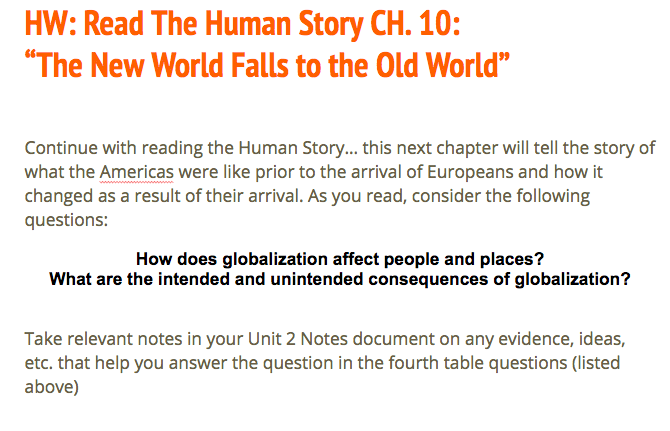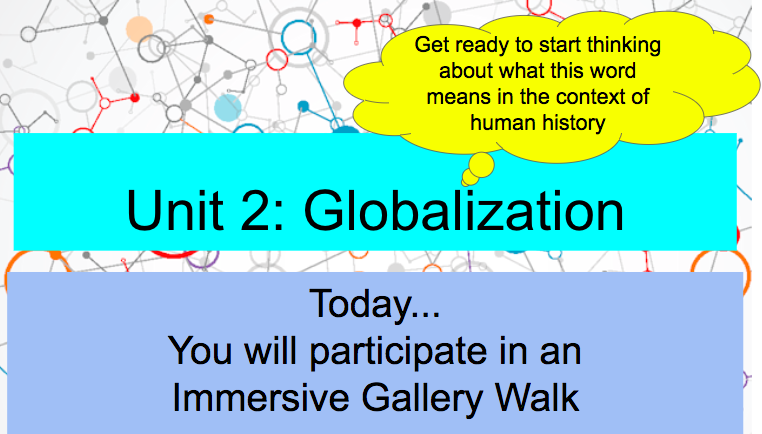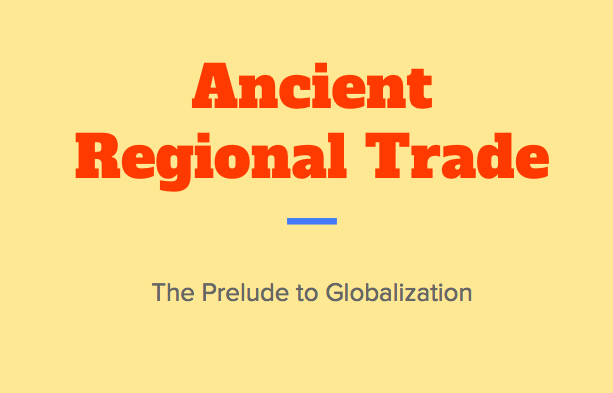Halloween PSA on Cultural AppropriationCultural Appropriation at Halloween: Teen Vogue "My Culture is Not a Costume" (video & article) HW: Read The Human Story "The New World Falls to the Old World" Today we will discuss what you learned about connections over land and connections over water. We will then take a look at "Era Six" (Global Convergence). To have a bit better of an understanding about what the experience may have been like with the world's cultures first began to converge, you will participate in a simulation called "The Hokies and the Heelots"-- you will be assigned to one of these 2 cultures today. Helpful Resources for today:
HW: Read The Human Story CH. 9 "We Find Each Other"; Take NotesRead The Human Story, Chapter 9 "We Find Each Other" (pgs. 147-167); take notes in your Unit 2 Notes document (you will need to add another row in the the first table. Take any notes that are relevant to helping you answer the driving question "How did the world become interconnected". You can also include any details that help you understand what the consequences of those interactions were as the world became interconnected and different regions of the world began to interact (think about how this connects to the Hokies & Helots simulation from class).
HW: Watch videos segments & take notes to answer the questions for each video; Due next classIndependent Study of Regional Trade (Trade Across Land; Trade Across Water) - Assignment Slides
Today you will begin developing your claim (responding to the research prompt/question):
"What role did collective learning play in the advancement of civilizations?" You will write your claim and then based on your claim, develop a 1-page outline. The template for this is in your WH Drop folder. Helpful Resources:
Today you will be asked to spend the first 5-10 minutes looking at the Inquiry/Research Rubric and be sure you understand what components of your research portfolio is assessed and how it is assessed. So.... your first task today: look at the rubric. No really, LOOK AT THE RUBRIC. You will be given most of today's class time to continue your research. In the last 10 minutes of class, partner with someone that you feel comfortable giving feedback to and receiving feedback from.
HW: Finalize Your research. Due next class!Finalize your research on the question "What role does collective learning play in the advancement of societies?"
You will know you are ready to finalize your research if you are able to answer some of your supporting questions (and have done so in your QCI table), and feel that you have enough information and evidence to confidently respond to the research question with supporting evidence. Until you reach that point, you'll need to keep researching. Reminders for your research:
|
Mrs. Stewart's CourseYou'll find a daily agenda posted here for each day that class meets Archives
May 2020
Categories |


 RSS Feed
RSS Feed